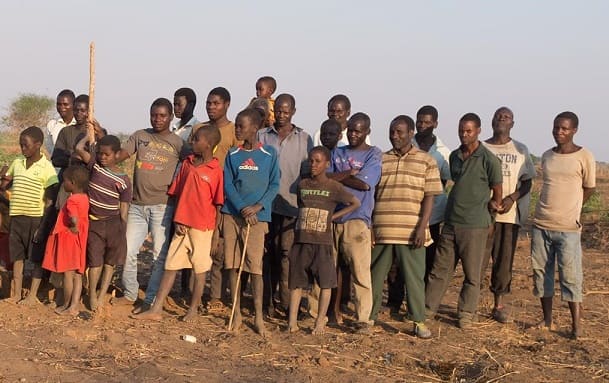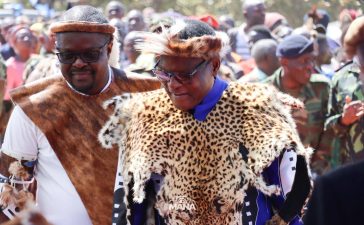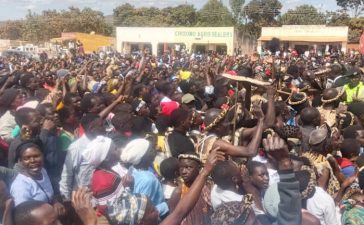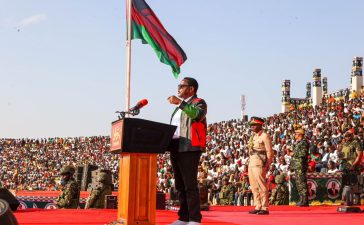BY BLAIR MHONE
Ignorance, lack of opportunities, unemployment, as well as exploitation among others are said to continue being drivers of trafficking in persons in Malawi.
Executive Director for Global Hope Mobilization (GLOHOMO) Caleb Thole raised the concern during a meeting by a technical working group on trafficking in persons in Mzuzu on Tuesday.
GLOHOMO in partnership with Foundation for Children’s Rights with funding from United States Agency for International Development (USAID) is implementing a counter trafficking project called Tigwirane Manja in Mzimba and Karonga districts in the northern region.
According to Thole, more efforts need to be done on prevention efforts like sensitization of people on trafficking in persons so that society at large knows the severity of the problem and how they can easily spot traffickers and protect would-be victims.
“There are many telltale signs of trafficking in persons that community members can easily spot when people are being trafficked. Usually these people travel in groups with one person paying for their expenses, in communities they sometimes live at their work place, they also don’t have proper documentation,” said Thole.
He also added that Malawi is a source, transit, and destination country for children, men and women, who are trafficked for body parts, forced labour and sexual exploitation.
This, he said, is the reason through the project different stakeholders have been engaged in order to find long lasting solutions in ending the vice once and for all.
One of the major stakeholder incorporated in the technical working group is the Malawi Police Service which is benefitting through capacity building for its officers on the Trafficking in Persons Act as well as resources to enforce the law on TiP.
GLOHOMO is also engaging the Malawi Law Society to provide pro bono lawyers to assist police prosecutors through pretrial meetings on how best to apply the TiP Act when they arrest perpetrators.
Mzuzu Police Public Relations Officer Paul Tembo says this development is welcome as it will aid the police in making sure they charge suspects of trafficking with cases that might result in stiffer sentences which may also act as a deterrence.
“This is a welcome development, some of our officers need capacity in how to apply the Trafficking in Persons act which has many cases with stiff sentences unlike the immigration law which is mostly used when suspects are arrested as most of its cases are misdemeanors resulting in fines which are also very small,” said Tembo.
During the deliberations, one of the major concerns also raised was lack of a proper shelter or safe home for victims of trafficking in persons especially children who need protection when their case is being prosecuted in the court of law.
Foundation for Children’s Rights Executive Director Jennifer Mkandawire said this is a big challenge as the victims end up being released at times leading to loss of cases as there are no witnesses available to assist in convicting suspects.
She said: “Lack of a safe home in the region is a big challenge, when victims of trafficking have been rescued they need to be put in a protected place. For instance, in Karonga, the place where victims and witnesses for trafficking are being kept is not fit to be called a safe home, most of the cases victims who are kept there end up just being released leading to loss of witness for the police to properly prosecute cases.”
On 25th March this year, Malawi Government through the Ministry of Homeland Security launched a 90-day national campaign against trafficking in Persons under the theme “Time to Act to End Human Trafficking in Malawi.”
Speaking at the launch, Minister of Homeland Secuirty Jean Sendeza said Malawi was committed to ending the acts of human trafficking and that is why they enacted Trafficking in Person Act in 2015 in order to counter the vice.
“Human trafficking is often referred to modern day slavery and Malawi remains the leading country in terms of human trafficking for forced labour with girls and young women being trafficked locally for prostitution. This is a great day for Malawi and I urge other organizations to join hands to end this illegal business,” she said at the time.
Some of the stakeholders being engaged in the project are the judiciary, immigration, social welfare, civil society organizations, the media, faith leaders, councils among others.
Global Hope Mobilisation (Glohomo), is implementing the Tigwirane Manja project in nine districts across the country with $1.275 million support from the United States Agency for International Development (USAID).













